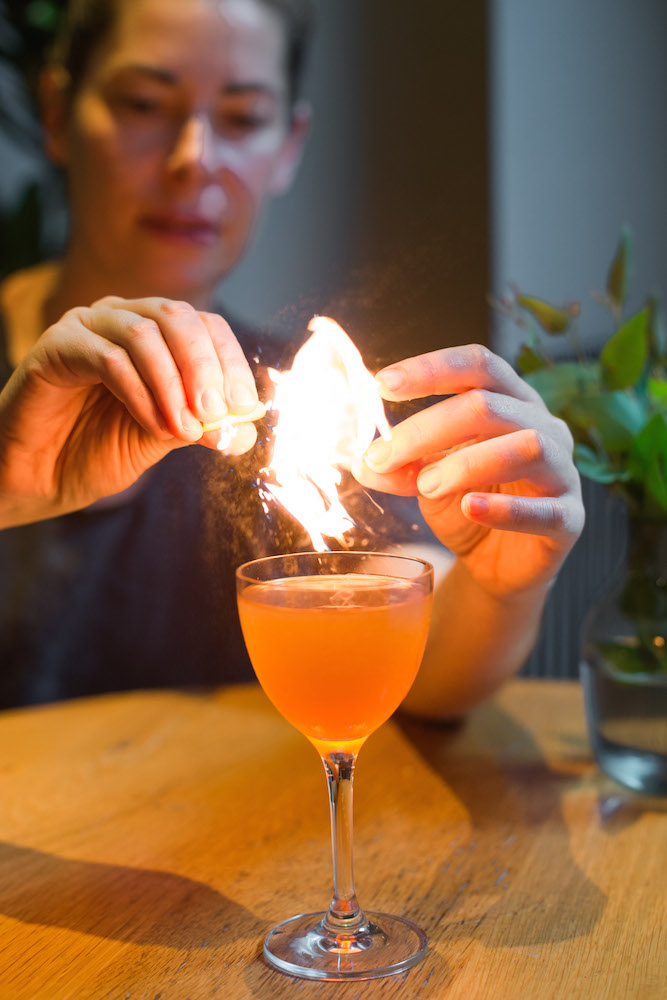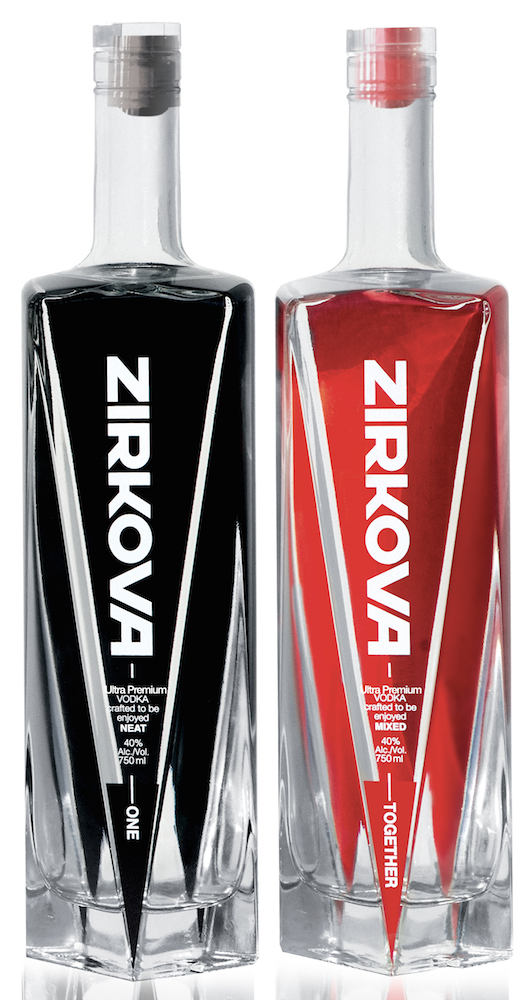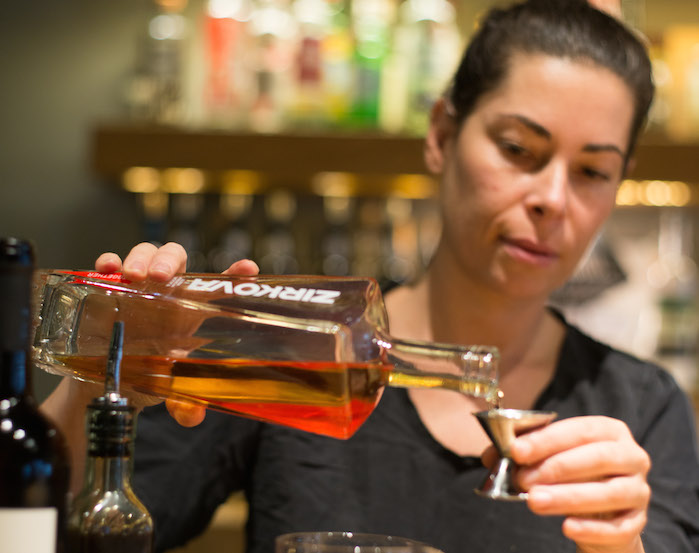Part of the problem with premium vodka is rooted in the American definition of the spirit.
So argues Derek Anderson, partner and CMO for the Ukrainian premium vodka brand Zirkova, which launched here in June. The U.S. Alcohol and Tobacco Tax and Trade Bureau defines vodka as “distilled . . . to be without distinctive character, aroma, taste, or color.”
No wonder many U.S. consumers think of vodka as a plain spirit. How could it have the depth of flavor as whiskey or wine? But Anderson and Tarajia Morrell, Zirkova director of culinary marketing & communications, want to help change that American misconception. We recently spoke with both about premium vodka and Zirkova.
Beverage Dynamics: How did we end with U.S. consumers assuming vodka is flavorless?
Derek Anderson: In the late ‘60s and ‘70s, when PepsiCo made a trade deal with the USSR to bring Stolichnaya into the U.S., PepsiCo made the decision to strip out all the vodka’s flavor to get more people to drink it. And that set the palate for how Americans still think of vodka today.

But that’s not how vodka is viewed in Eastern Europe. They think of vodka in terms of terroir. They have a more nuanced palate for it. If you asked someone in Eastern Europe what vodka they want to drink, they’d tell you it depends on the occasion: before, during, or after a meal.
We want to return vodka to that in the U.S. — to its Eastern European heritage, with its wide variety of flavors and terroir, and even seasonal flavors.
BD: You must have to educate consumers about what makes vodka premium.
TM: We have to re-educate them about what to expect from premium vodka. We have to show people who already know everything about wine and whiskey that vodka has the same nuances.
DA: A lot of other brands and categories have already done the heavy lifting. Think about how much of beer was just Budweiser for a long time before it all became about craft. Whiskey was the same way. Now consumers want to know more about everything they drink, and we believe that can come into vodka as well. People just trying the product, and realizing the quality of the vodka, is a big part of the education.
TM: So many bartenders have been advocates for the brand, including Cosme beverage director Yana Volfson (pictured atop). We’re in places where they didn’t have vodka cocktails on the menu before, like the Bowery Hotel. We’re in the Mirage in Brooklyn.
BD: Along those lines, Zirkova has two expressions: Zirkova Together is marketed for mixing, and Zirkova One is for sipping. Why that strategy?
Tarajia Morrell: One is for someone who’s passionate about vodka. It’s meant for drinking on the rocks or in martinis. It has exceptional viscosity, minerality, and creaminess. The wheat and rye we use all comes from rich soil in the Ukranian region of Zolotonosha, while the water comes from the nearby Zolotonosha underground aquifer.
Together is for someone not necessarily looking to taste the spirit but use it to help bring out flavors of ingredients in cocktails. But it’s not a vodka that tastes like nothing. It allows bartenders to pull back on a cocktail’s sweetness, rounding out the edges of the drink.

BD: Zirkova is among many brands these days with a focus on charitable work. What’s with that movement?
DA: It really is at the core of our business. As a serial entrepreneur, I’ve always been involved in charity work. I’ve sat on the board of seven different charities. I have the mindset that ‘Much is given, and much is expected.’ Ten percent of all our gross revenue goes towards all the causes we support.
We want to be part of the paradigm shift that’s currently going on in entrepreneurship that doing good charity can also help your business. We believe that people are fundamentally good. If they know they’re getting a good product at a good price, and at the same time contributing to helping the world, then that’s making charitable work a key driver of your business’ success.
TM: We started a 501(3)(c), We Are One+Together, to form a literal connection between the vodka and the charity work. We help people who are being marginalized.
We’ve worked with venues on cocktails for a cause events, which donate $1 for every of our cocktails sold. We’re working with the MeToo movement on a big benefit concert. All of that is in addition to the 10%.
Kyle Swartz is managing editor of Beverage Dynamics magazine. Reach him at kswartz@epgmediallc.com or on Twitter @kswartzz. Read his recent piece 5 American Whiskey Trends to Watch in 2017-18.







[…] Kyle Swartz is managing editor of Beverage Dynamics magazine. Reach him at kswartz@epgmediallc.com or on Twitter @kswartzz. Read his recent piece When Will Americans Embrace Premium Vodka? […]